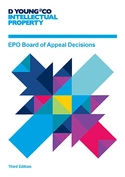G 1/21: oral proceedings by video conference permitted but suboptimal
The written decision confirming the order of the Enlarged Board of Appeal in G1/21 and setting out the reasoning behind it has now been issued. Notably, it states that in-person hearings should be the default option for Boards of Appeal and video conferencing is suboptimal format compared to in-person oral proceedings. The Enlarged Board of Appeal confirms that Boards of Appeal have the discretion to deviate from a request for in-person oral proceedings.
The Enlarged Board of Appeal chose not to address the issue in examination or opposition proceedings.
Video conferencing is a form of oral proceedings under Article 116 EPC
The Enlarged Board of Appeal noted that Article 116 EPC is not primarily concerned with what constitutes oral proceedings but rather addresses the question of when oral proceedings are to take place. The Enlarged Board of Appeal considered that those involved in the legislative process leading to the EPC 1973 had in-person oral proceedings in mind but it cannot be concluded that oral proceedings should be limited to the specific form that was known at the time the Convention was drawn up. The Enlarged Board of Appeal stated that it is improbable that the legislator wished to rule out future formats for oral proceedings which might be made possible by technological progress. Hence, they concluded that oral proceedings in the format of video conferencing are within the meaning of Article 116 EPC. The Enlarged Board of Appeal also noted that no party is obliged to appear in a particular geographical place.
Video conferencing is suboptimal compared to in-person oral proceedings
The Enlarged Board of Appeal stated that video conferencing ensures that the essential features of oral proceedings occur - namely: the opportunity for parties to present their case orally, to have an interactive exchange of arguments and, consequently, the possibility to respond to inquiries and act according to any procedural development.
The Enlarged Board of Appeal acknowledged that video technology has improved in recent times, but considered that it cannot be said to provide the level of communication which is possible when all participant are physically present in the same room. They went on to state that even if video conferencing has shortcomings it provides parties with an opportunity to present their case and, in combination with written proceedings, is sufficient to comply with the principles of fairness of proceedings and the right to be heard.
The Enlarged Board of Appeal dismissed arguments that it is not possible to read body language by stating that visibility of a person depended on factors such as, in the in-person format, the set-up of a courtroom or the distance from members of the board or, in videoconferences, the quality of the cameras, screens and transmission.
It concluded that videoconferencing is suboptimal as a format for oral proceedings but not to such a degree that a party’s right to be heard or the right to fair proceedings is seriously impaired.
The Enlarged Board of Appeal stated that in-person oral proceedings are, for now, the optimum (or “gold standard”) format.
In-person hearings are the default option
The Enlarged Board of Appeal stated that in-person hearings are the default option and that parties should only be denied this option for good reasons.
It pointed out that if video conferencing is not suitable for a particular case then oral proceedings will need to be held in-person. However, the Enlarged Board of Appeal did not elaborate on what those reasons are.
The Enlarged Board of Appeal also stated that there may be circumstances specific to the case which justify not holding in-person oral proceedings and these circumstances should relate to limitations and impairments affecting the parties’ ability to attend in-person oral proceedings at the EPO. In the case of a pandemic, these circumstances could be general travel restrictions, disruptions to travel possibilities, quarantine obligations, access restrictions at the EPO premises and other health-related measures aimed at preventing the spread of the disease. Reasons such as availability of rooms, interpreters or efficiency gains should not be considered.
The Enlarged Board of Appeal confirmed that the Board of Appeal must have the discretion to deviate from the preference of a party to hold in-person oral proceedings.
Post-pandemics, the wording of the decision seems to make it less likely that video conferencing (using current technology) will be the default option for oral proceedings.


